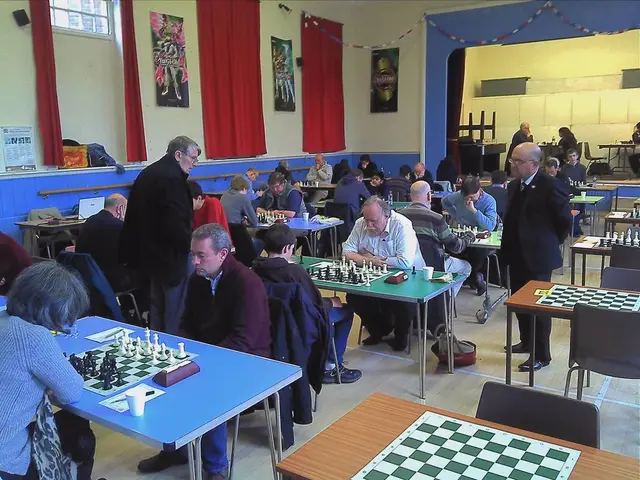Exploring the Evolution of Gambling in Germany - Section 2: Probability Calculations, Lotteries, and Initial Betting Venues
The Evolution of Gambling in Germany: From Early Beginnings to Modern Times
The history of gambling in Germany can be traced back to early modern times, with its development closely tied to the evolution of the nation's financial system and state policies.
Early Beginnings and Influences
Gambling in Europe, including Germany, began as a means to raise public funds for various purposes, often associated with religious or charitable projects. The well-known classes of lotteries and the principle of the numbers game probably originated in Italy and were later adopted in Germany[1]. Public lotteries, generating income for princes and royal houses, were established as early as the 15th century[2].
Growth and Regulation
As Germany developed sophisticated financial and banking systems, particularly in cities like Augsburg and Nürnberg, organized lotteries emerged as a form of raising public funds without direct taxation[2]. However, while gambling was no longer fundamentally illegal, excessive gambling was frowned upon or banned[1].
The Rise of Casinos and Slot Machines
The first casino in the world, the Ridotto, was opened in Venice in 1638, while it took another 80 years for a casino to open on German soil. The famous Bajazzo machine, invented in 1904, became common in catering establishments, and was confirmed to be a game of skill in the Bajazzo trial of 1927[3]. Slot machines with reels were developed around the turn of the century, but were not allowed to be operated in Germany[1].
The Impact of Historical Events
The temporary closure of all German casinos by 1872 was a result of the founding of the German Empire in 1871[1]. Slot machines production in Germany almost completely stopped due to the focus on the arms industry during the rise of Nazism[1].
Modern Gambling Landscape
After World War II, new laws were enacted, and the sports betting business began to grow significantly[4]. Today, Germany operates a national lottery with several games such as Lotto 6aus49, Super6, Spiel77, and Glücksspirale[1]. These lotteries are state-regulated and contribute to public revenues, social programs, and charitable causes.
The Role of Mathematics
Mathematical research in the field of probability theory, led by mathematicians such as Blaise Pascal, Jakob Bernoulli, and Pierre de Fermat, ultimately led to the correct determination of the chances of winning in games, which was the basis for the profitability of gambling games[5]. The French writer Chevalier de Méré, a contemporary of these mathematicians, is considered one of the pioneers in the field of probability theory[5].
In summary, Germany’s gambling history traces its roots to early public fundraising efforts, matured during the development of the European financial market in the 16th century, and now serves as a major regulated source of state revenue and public welfare funding through its national lottery system[1][2][4]. The role of mathematics in determining the odds of winning games has been instrumental in shaping the profitability of gambling.
[1] https://www.dw.com/en/the-history-of-gambling-in-germany/a-18286179 [2] https://www.britannica.com/topic/lottery [3] https://www.dw.com/en/the-history-of-gambling-in-germany/a-18286179 [4] https://www.dw.com/en/germany-s-gambling-market-booming/a-19157934 [5] https://www.britannica.com/biography/Blaise-Pascal
- What about the emergence of casino-and-gambling activities in Germany where lotteries played a significant role in early fundraising efforts?
- Despite the ban on slot machines in the early 20th century, lotteries like Lotto 6aus49, Super6, Spiel77, and Glücksspirale, which are state-regulated and generate revenue for public welfare, remain popular in modern Germany.







